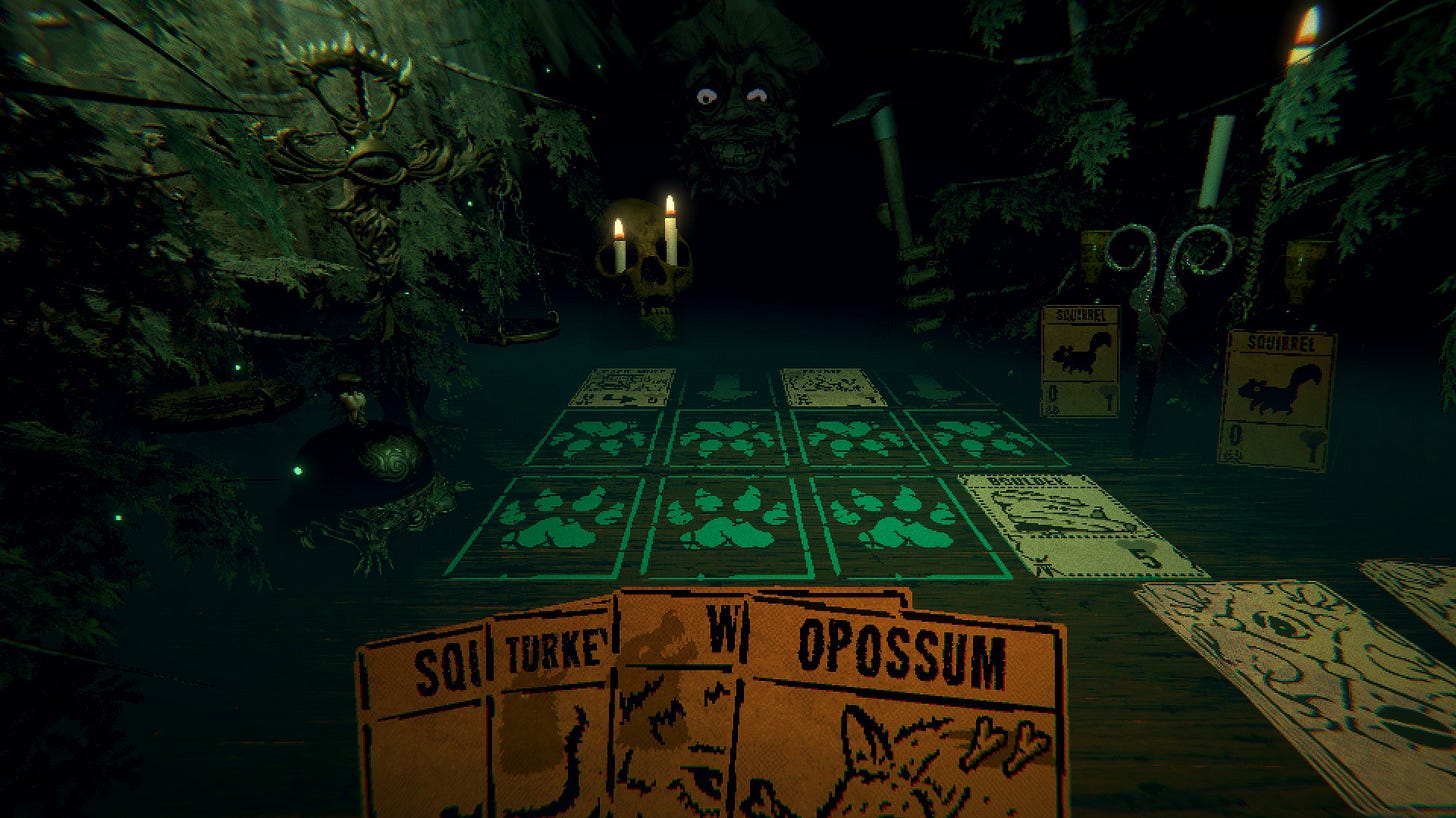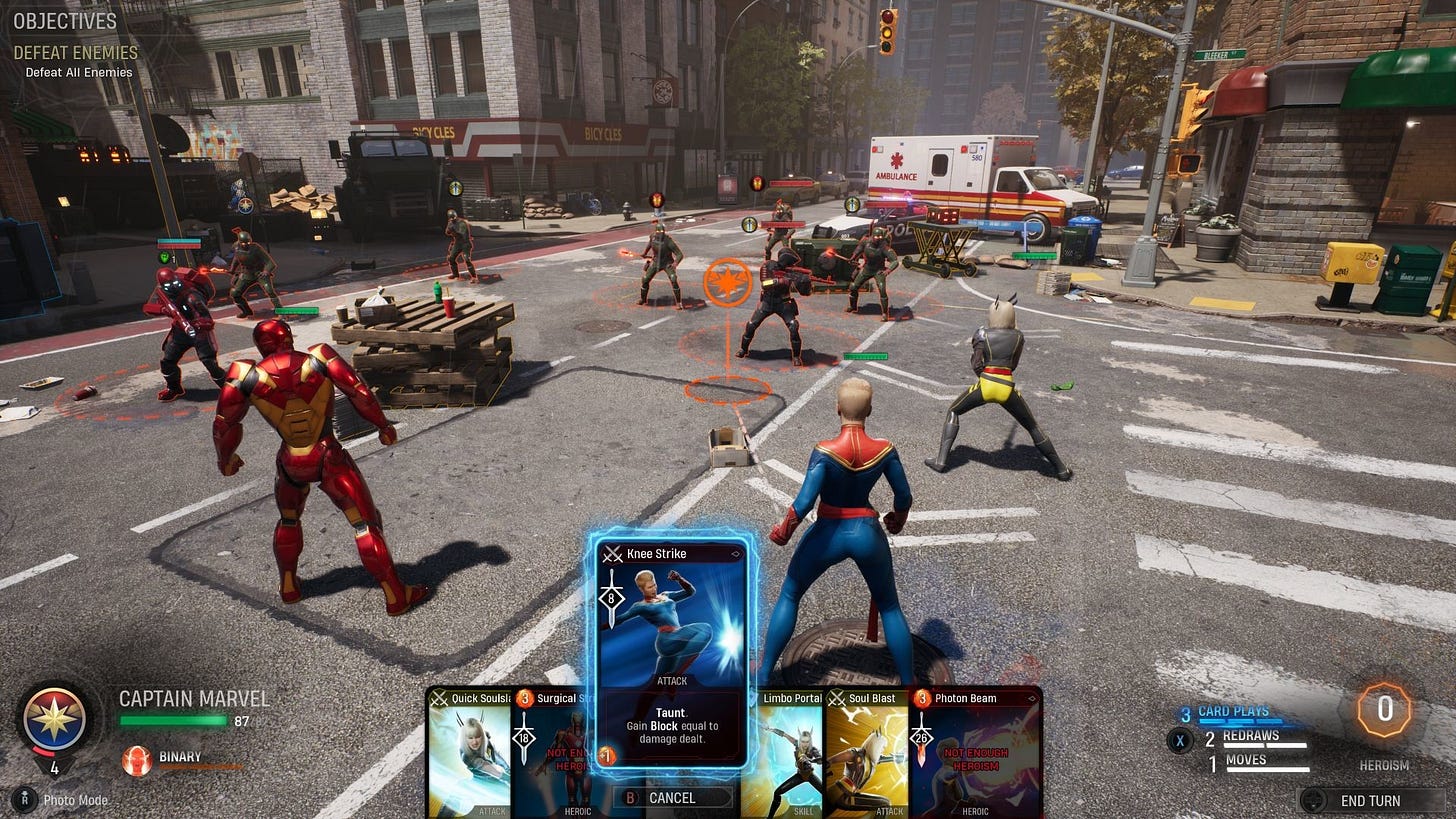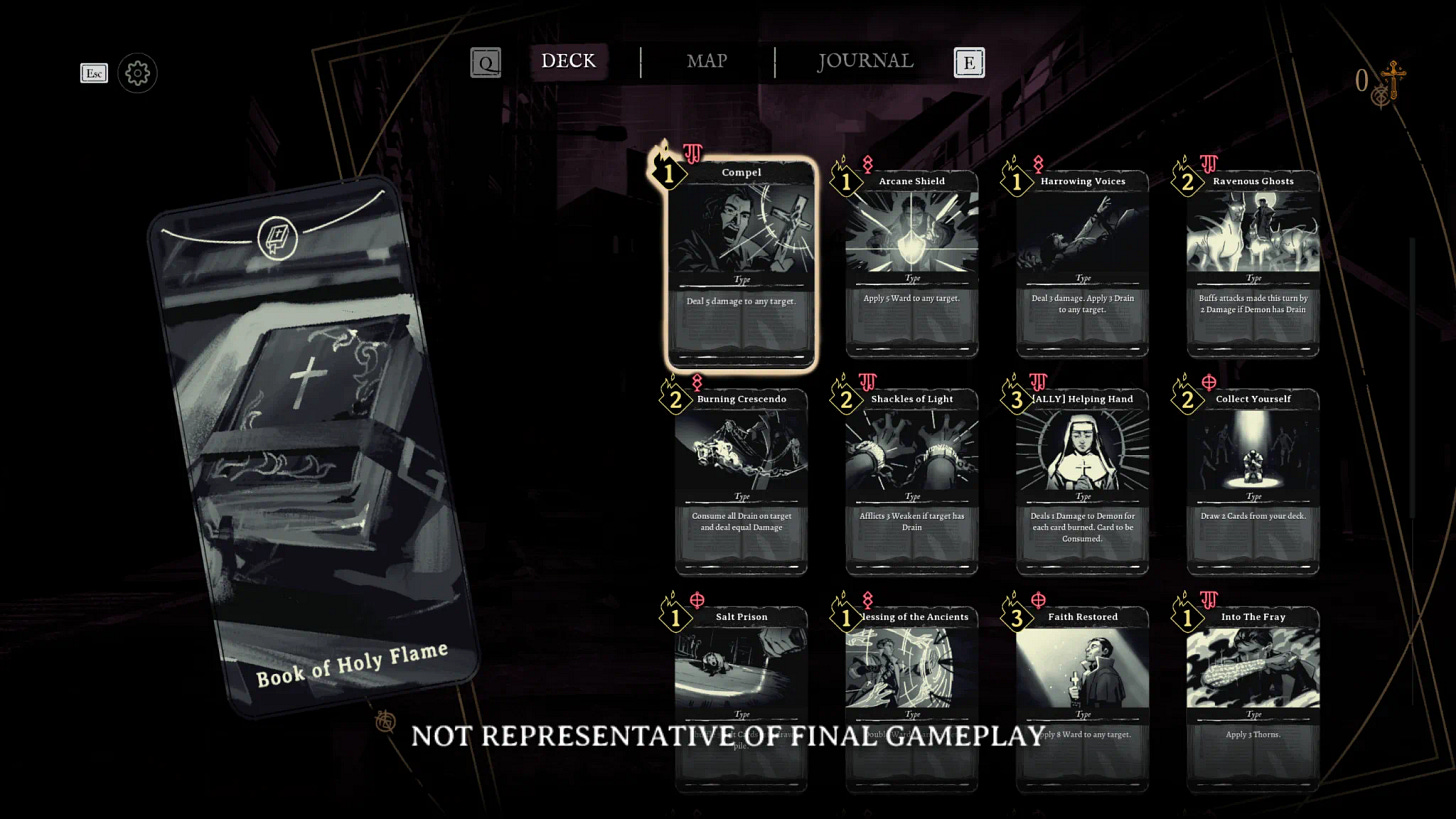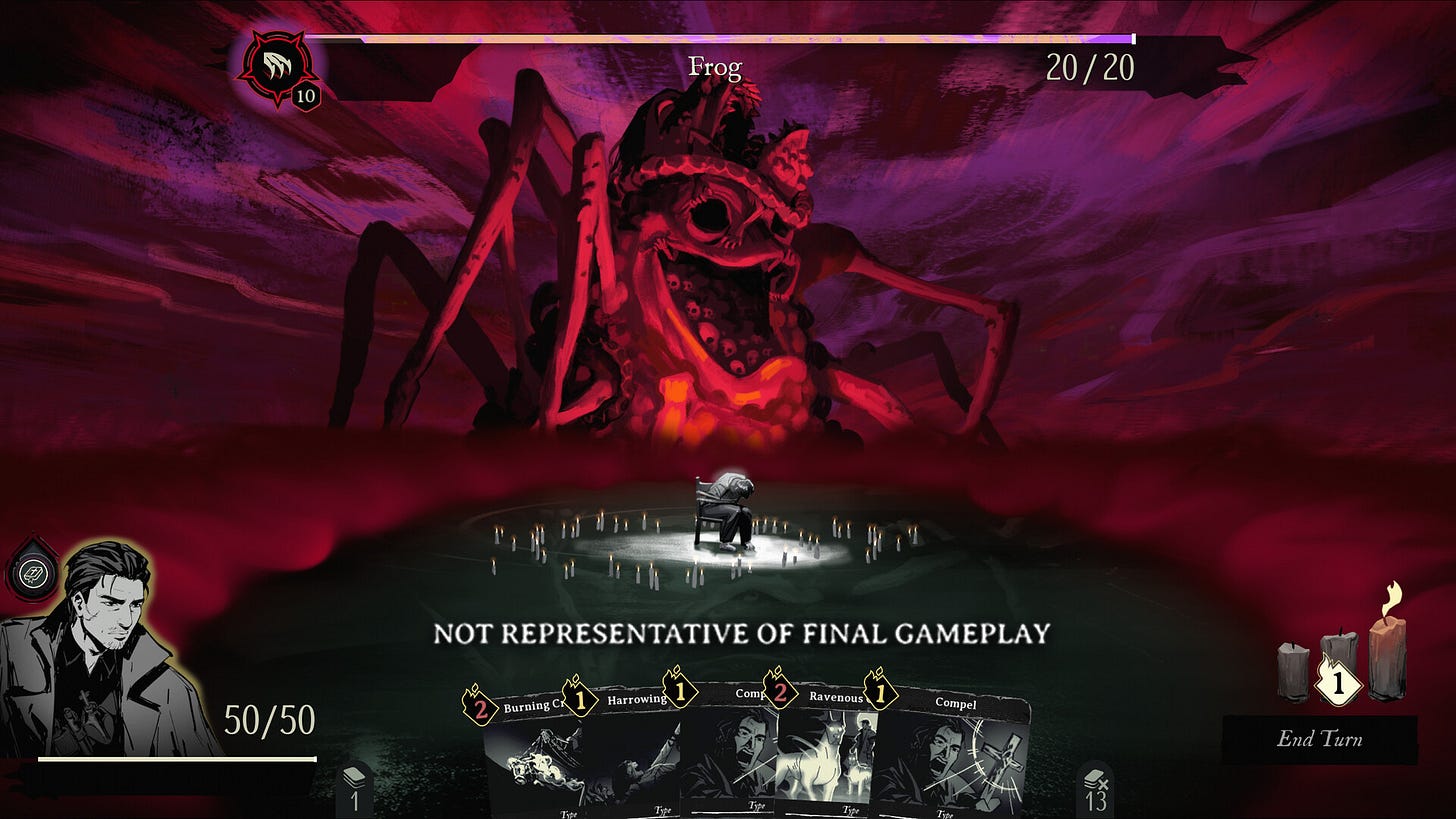Is there room in the deckbuilder boom for bolder storytelling?
Can Summerfall Studios change with the seasons?
My guest for this issue of Multiplier is David Gaider, the co-founder and creative director at Summerfall Studios. Prior to that, he was the lead writer at Bioware with credits on Neverwinter Nights, Baldur’s Gate 2: Shadows of Amn, Star Wars: Knights of the Old Republic and the Dragon Age franchise.
Summerfall Studios released its debut title, Stray Gods: The Roleplaying Musical, back in 2023 and is currently crowdfunding for its next release, an occult deckbuilder named Malys. You can follow both Summerfall and Gaider on Bluesky.
Fergus: It’s very easy to see Summerfall Studios’ debut release as a reflection of the audience that the studio is looking to cultivate for itself. Throughout the development of Stray Gods, the studio was quite loud about its connections to the incarnation of Bioware known for classic roleplaying games like Dragon Age and Mass Effect. However, the finished product said a lot about what aspects of those inspirations were most important or interesting to the developer.
Stray Gods feels like a game built for - and by - the audience who have always found that the choices and characters to be the most compelling thing that modern roleplaying games have to offer. The crowd who doesn’t want loot nearly as much as they want a good love story.
All this is to say that Stray Gods was made with a very specific kind of roleplayer in mind. What’s more, given the strong critical reception to the musical roleplaying adventure game, it’s easy to imagine a world where Summerfall stayed in that lane. Sticking to what you know and following up with Stray Gods 2 (or something else designed to cater to that same audience) seemed almost a given.
Forgive the pun but a roguelike deck builder did not seem like the kind of project that would be on the cards for Summerfall’s sophomore effort. For a studio built on the promise of emotionally-fueled and character-driven narrative games, Malys feels like something of a shift. How did we get here?
David: Yes, I suppose on the surface it does seem like quite a shift, doesn't it? Certainly we could have looked at making Stray Gods 2 (and there's still potential for that in the future), but we think of ourselves less as "the studio that makes musicals" and more as "the studio that makes character-driven narratives and finds new ways to tell them.
So, for us, this isn't as much of a shift as you might think. Malys is a rogue-lite deckbuilder, but it's also a game with a strong narrative element - and part of the challenge here, and honestly the part that interested me the most, was figuring out how to merge the two without having them infringe on each other too much.
True, it's possible that not everyone in the Stray Gods audience is going to be up for a game like Malys, which has a lot more gameplay to it, but I think in the long-term I'd like our audience to recognize that Summerfall is always going to do something a little different and interesting... while, at the same time, never losing our focus that story comes first.
Fergus: I think leaning on narrative is a really ambitious bet to make, especially given the runaway success of Balatro. The audience for deckbuilder games isn’t necessarily a monolith but when you look at the biggest and breakout hits in the subgenre, they’re rarely defined by their storytelling.
That’s not to say it can’t be done or done well though. Obviously, Inscryption provoked a very strong response from players with its uniquely subversive approach to narrative. You’ve also got stuff like Griftlands, Nowhere Prophet and Signs of the Sojourner, which offered fresh and novel ways to weave in evocative stories and characters within a familiar format.
Perhaps the key difference is that distinction between rogue-like and rogue-lite. As games like Hades or Deathloop demonstrate, you can get a lot of mileage out of a story that lets your character try, fail and try again until they succeed.
All this is to say that given how crowded this subgenre is becoming, I can’t help but imagine that a lot of thought has gone into how you want to stand out and make your mark on it. How much of that intention is informed by your own experiences with roguelike deckbuilders? What inspired you and the rest of the team at Summerfall to push that focus on the story further with Malys?
David: Those are absolutely valid observations. For me, I play a lot of deckbuilder games, and I like the ones where the cardplay adds to the narrative element. You bring up Griftlands, which is definitely a favorite, but I think Marvel's Midnight Suns is another recent (and underrated) example.
Part of our idea for Malys was that the events of an exorcism could be abstracted through the gameplay. As you play your cards, that cues the chants that you hear Noah using and it builds up in tension with each round until Noah is loudly shouting his commands to expel the demon - it adds to the player's vision of Noah as this powerful exorcist, adding to the rest of the narrative rather than competing against it.
Funny you mention Hades, because that also has an element I like: the roguelike where the "loop" is a diagetic part of the story. Namely, that the characters recognize the loop is happening and the story evolves and reacts to the loops as you progress rather than treating the entire thing as an abstraction. We have the same thing in Malys, where the night playing out from the start over and over is the main mystery Noah needs to solve.
Is it possible this is more narrative than some fans of roguelike deckbuilders would like? Possibly. We do allow the written encounters to be skipped (so they can get to the rewards or consequences at the end), if that's someone's preference, but a lot of work has gone into it for those that will appreciate it.
Fergus: Midnight Suns is a tremendously good example of how the strategic layers of the card game can feed back into the narrative of even a single combat encounter. My gut feeling is that the fact that you're able to see your characters animate and perform the moves associated with each card does a lot of heavy lifting though.
I’m reminded of an old Shut Up and Sit Down video about Netrunner and the way that it highlights the evocative nature of the cards as a key part of the game’s appeal. Presented the right way, a card can be much more meaningful and narratively-charged than the in-game effect of it might initially seem.
That said, Midnight Suns does have the benefit of an ensemble cast. Meanwhile, other deck builders like Slay The Spire typically come with multiple playable characters. Malys’ emphasis on a single protagonist runs against the grain in that respect and raises some interesting questions about replayability.
If the cards you’re playing are reflective of Noah’s character in any given run, is it more compelling to veer towards one deck archetype based on either its strategic or storytelling implications? Is there a tension there or is letting players pursue the narrative they’re interested in and the playstyle that comes with it the whole point?
David: When the player begins a run in Malys, they select an Artifact - narratively, the strongest arcane tool in Noah's arsenal, but gameplay-wise it also determines the composition of your starting deck as well as a modifier which influences how those cards are used during that run.
Now, that's subject to change as we continue balancing, but ultimately the goal is that the Artifacts supply you with different playstyles and thus have a knock-on effect on the emergent narrative in those exorcisms.
We may not have the budget of Midnight Suns, no, but our focus really is on allowing as much variation in strategy as we can while making the resulting mix of cards change up the feel of your encounters.
Exorcisms aren't the only narrative you'll encounter in Malys - you also have the city encounters and the slow ramping up of the critical path storyline, and those also influence your deckplay, but it is our centrepiece and so we're trying hard to get it right.
Fergus: I hope you do. When I look at some of the work-in-progress screenshots for Malys, the thing that stands out is the dramatic sense of scale to each of those one-on-one supernatural encounters.
If every demon you face feels like a Dark Souls boss fight or something from Kingdom Death: Monsters, the looming dread and supernatural spectacle that each adversary inspires could go a long way towards making repeated attempts feel like they still have stakes and gravity to them. Likewise, the idea of mixing things up with more non-combat encounters and allowing the tension to build and then break multiple times over the course of a run sounds like it could make for an alternative take on the deckbuilder that strikes a chord with more than just the usual card-drafter crowd.
Malys might not be the game I expected Summerfall to make next, but it’s not hard to see why the studio has chosen to dance with chance and let cards lead the way with its next narrative venture.









